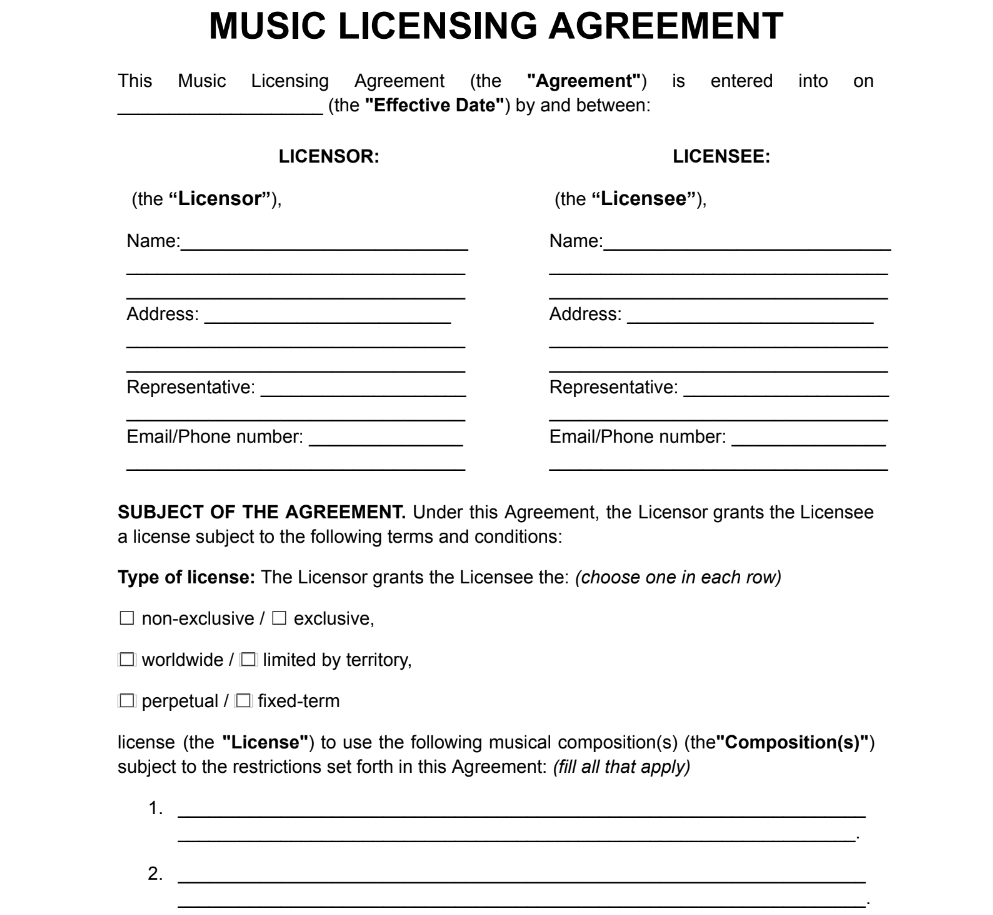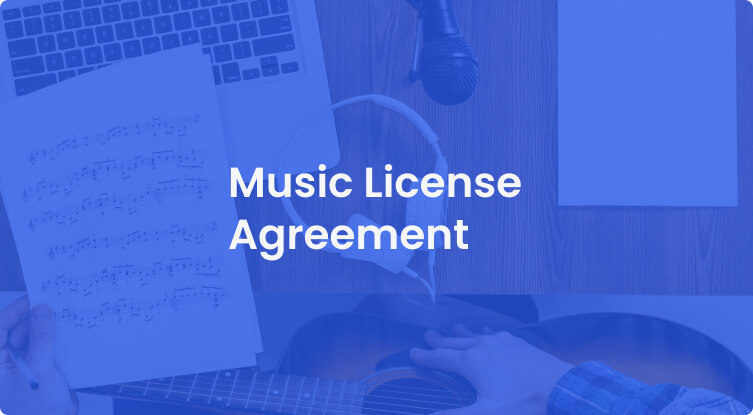 Preview
Preview

A music licensing agreement is a legal contract that dictates the permissions given by one party to another for the utilization of their music. Composers, songwriters, and music publishers usually give permission to television networks, filmmakers, or advertisers who wish to include a specific song in their project. The music license agreement template is thorough and covers the terms, rights, responsibilities, and fees, all with the goal of safeguarding the interests of the original music creator.
Essentially, any time a third party intends to use your music, a simple music license agreement template becomes necessary. Such cases could include:
Understanding when a music licensing agreement is essential, it’s time to delve into its components.
In the music licensing, you’ll find quite a few important terms and parties you need to know about:
The typical terms included within a sample music license agreement are:
After you know what’s in a music licensing agreement, it’s time to make one yourself.
Creating a music licensing contract involves a few key steps:
A well-structured music licensing agreement is crucial in the field of music usage and distribution. It brings security and confidence to both copyright holders and licensees. The document enables all parties to clarify expectations upfront, fostering a more cooperative and beneficial music licensing relationship.
For those seeking a secure and swift procedure to handle a music license agreement, formats like PDF or Word could be optimal – you can get one available online or on this website. Whether you’re a music creator granting rights or an entity seeking to utilize a musical composition, a music licensing agreement template can set the stage for a mutual understanding and successful collaboration.
 Preview
Preview
